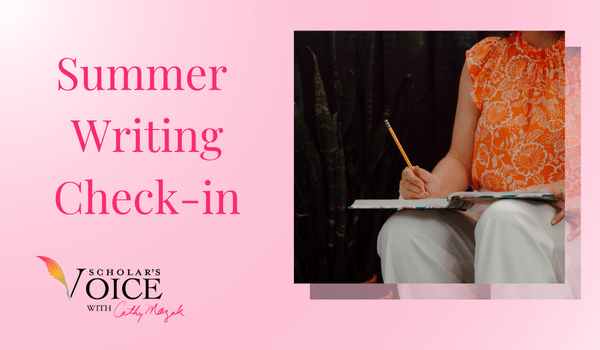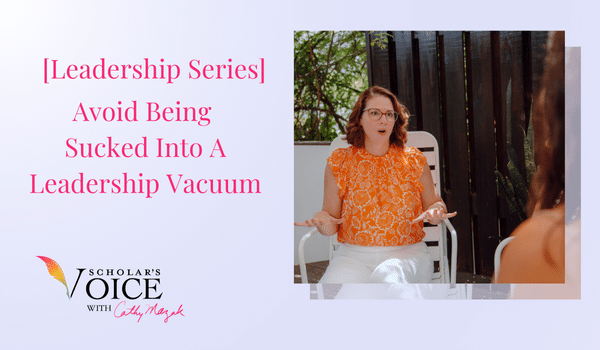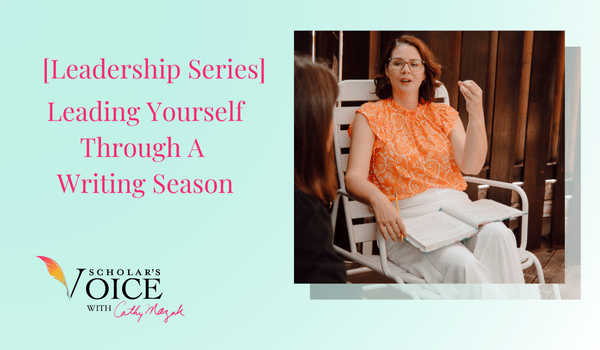Relational Drama Of Academia Getting You Down?

Dealing with relational drama and toxic relationships is a drain on your energy and inevitably slows your writing and publications. Unfortunately, managing toxicity is a common challenge for professors because the sociocultural structures within academia reward relational drama.
MORE DETAILS
In today’s episode, I address the common causes of relational drama in academia. I explain how transitioning from apprenticeship to early career professorship can cause toxicity in relationships with mentors and colleagues. In addition, I share ways to manage relational drama and set boundaries so that toxic relationships do not affect your career growth, impact, and publication pipeline.
When Do Academics Experience Toxic Relationships?
Relational drama shows up when you are operating as if you are in an earlier season of your career than you actually are. For most early career academics, this means you are stuck in the power dynamic of the apprenticeship phase when you should be in a higher, more developed leadership position.
As you are trying to get out from under the wing of your advisor, colleagues still think of you as part of your advisor or your advisor’s work. It can be challenging to separate yourself as an independent scholar. But if you allow yourself to get stuck in a place where you aren’t creating new relationships and putting forth new ideas, you end up conceding to others. Figuring out how to break with old mentoring relationships is necessary to drive new projects and step into a leadership role.
How Can You Work Through Relational Drama?
Managing toxic relationships is complicated and emotional work! There are some ways to work through relational drama.
- Establish Boundaries – Think about how you are training people to communicate and interact with you. Toxic and dramatic people respond to how you reinforce or reject their behavior. For example, choosing not to reply to a toxic email is an excellent first step to establishing boundaries.
- Cutting Off Relationship – For deeper and more complex drama, it may be necessary to cut off toxic relationships. Many academics feel conflicted about ending relationships with toxic advisors or colleagues because they fear how it will impact career growth. You do not have to put up with this behavior. There are many ways to be successful in a professorship, but subjecting yourself to drama or toxicity that will negatively affect your ability to write, publish, or establish a voice in your field is not the answer!
“We tend to think that relational drama and toxic relationships are worse inside academia. I think this is true. Humans are humans and there is always going to be relational drama and toxic people, but when you are inside academia, there is more toxicity because the structures and sociocultural patterns and general culture of academia can reward that kind of toxicity.”
“If you have negative feelings towards a coauthor or collaborator it is a recipe for lack of momentum. That’s why it is important to talk about toxicity, setting boundaries, and teaching people how to communicate with you because your writing suffers when you are doing too much relationship work.”
We’ve opened the waitlist for our next cohort of Navigate: Your Writing Roadmap®. Check out the program details and get on the waitlist here.
CONTINUE THE CONVERSATION:
- Our 12-week Navigate: Your Writing Roadmap® program helps tenure-track womxn and nonbinary professors to publish their backlog of papers so that their voice can have the impact they know is possible. Get on the waitlist here!
- Cathy’s book, Making Time to Write: How to Resist the Patriarchy and Take Control of Your Academic Career Through Writing is available in print! Learn how to build your career around your writing practice while shattering the myths of writing every day, accountability, and motivation, doing mindset work that’s going to reshape your writing, and changing academic culture one womxn and nonbinary professor at a time. Get your print copy today or order it for a friend here!
- Want to train with us for free on your campus? Now you can when you recommend our Scholar’s Voice Faculty Retreats to a decision-maker on your campus! Download the brochure with the retreat curriculum and both in-person and online retreat options here.
FOLLOW US ON SOCIAL:
RELATED PODCASTS
Stay current in Academic Publishing
Subscribe to our newsletter:
In the Pipeline
writing tips, publishing trends, reading recomendations, free workshops





